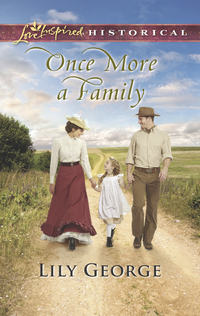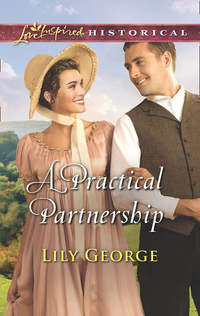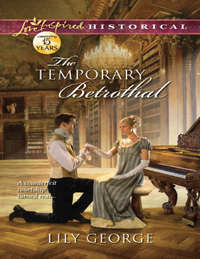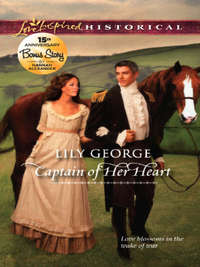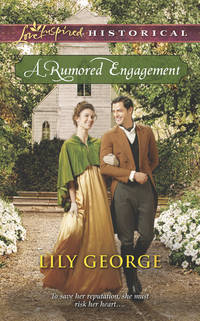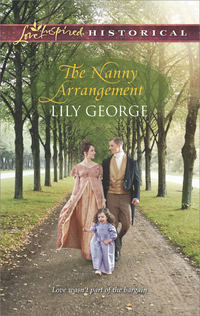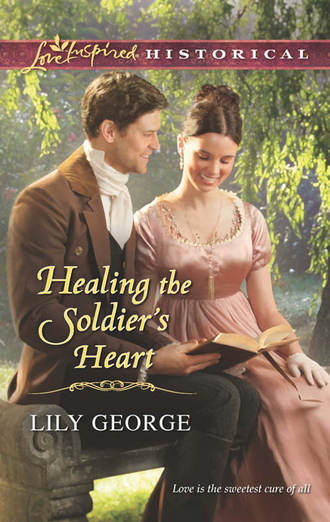
Полная версия
Healing the Soldier's Heart
“You know, I think you’ve been much too hard on yourself, Rowland. Think of it. Most of us were far too young to be in the military. I was twenty. How old were you? Eighteen? We were green as grass and broke formation. That’s how the Frenchies were able to get the best of us.” Macready paused, rubbing his battered arm. “Hiding in the rye as we did, well, that was simple survival. We had almost no chance against the cavalry.”
Well, they had hidden. That much was true. But while Macready lay delirious from dreadful wounds, Rowland had been awake and fully alert when he played dead. Like a coward. He had feigned death to the point that the peasants who came to collect them after battle thought he had died. And he didn’t cry out for help but remained mute even as his body was loaded onto a cart bound for Brussels.
The shame of his deception burned strong, deeper perhaps than any physical wound he could have sustained at Waterloo. And there was nothing he could do to right the wrong. His inability to speak seemed as though no more than justice. There was, after all, nothing he could say to defend or excuse the cowardice he had shown. And if he regained the power of speech, would he ever find a way to express his disgust with himself? His profound disappointment at how little he had done to save his fellow men?
The silence between them stretched out, punctuated by the ticking clock on the mantel. At length, Macready cleared his throat. “That’s why I asked you to come to Bath, you know. You needed to recuperate as much as I did. And Cantrill, he’s looking out for your welfare, too. I think that this Miss Williams shall probably play a significant role in your healing.”
Macready knew everything. He knew about Mrs. Rowland’s tears and recriminations. He knew about the doctor in Essex who had told James Rowland that fear had tied his tongue. He knew about the shame and the anger and the horror of the battlefield. And yet, Macready sought only to offer help. Never once had he blamed James for his injuries. But he should.
James struggled painfully with his voice for a few moments. It seemed he couldn’t force the words over his tongue. “I—I—I...” He trailed off, and inhaling deeply, he began again. “I—I am s-sorry.”
“Whatever for, old man? We were all of us terrified. We did what we could under the circumstances.” Macready rubbed his hands together briskly. “How about some tea? I could do with a bit, myself. Not to sound flippant, but that Bath water tastes like rotten eggs. And, uh—” Macready nodded his head at the heap of broken china on the floor “—I’ll bring a whiskbroom so you can tidy up.”
Macready heaved himself up from the chair and made his way to the small kitchen. The rattle and clank of the kettle and dishes signaled that he was readying the tea and had no more wish to converse about the past than James.
James rubbed a weary hand over his brow. Of course he didn’t want to think about it. No one wanted to examine the unpleasant or foolish side of himself. But all the same, James had a driving curiosity to know the truth. What kind of fellow was he after all? There was a saying that the battlefield brought out what was genuine in a man. If so, then he had failed the test miserably. Sure, he was young. But then, they all were. What made a man suffer nobly, like Macready? And what made a man hide and cower with fear as he had? Where was the defect in his character? Would that he could root it out and tear it away, like attacking weeds in an overgrown garden.
He wasn’t sure he deserved the friendship of his fellow veterans, like Macready. That’s what made attending those veterans’ group meetings so difficult. Those men had sustained real injuries while defending home and country. Many men had given their lives, leaving wives and children behind. He couldn’t even look the widows in the eye, so riddled with shame was he. Their husbands had paid the ultimate sacrifice while he lay silent in the rye at La Sainte Haye.
If he wasn’t sure he deserved the friendship of those brave men, then he felt doubly undeserving of Miss Williams’s attention. She seemed to care about others quite a bit, judging from her conversation with Cantrill. Every mention of her charges or Sophie brought a merry twinkle to her eyes. She would never sit back and allow others to suffer in her place. Someone like her would recoil in horror at his cowardice. Not that he had a chance with her anyway, poor and mute as he was. It was just that, in general, a friendship with someone like her could be nice. It took the rough edges off of life.
How could he come to deserve friendship again? Perhaps he could begin by confronting his shame and his cowardice first. These twin emotions had robbed him for two years now, leaving him bereft of speech. Only by ridding himself of them could he regain what he lost.
It was going to be a difficult journey. But, like the soldier he should have been, he could take it battle by battle. He would regain his power to speak. He would find a way to support his mother and sister. And in doing so, he would become a man. Not, perhaps, the man he should have been had he not been such a quitter on the field of battle. But, perhaps, the man he was meant to be.
He sighed.
Would he ever become the kind of man who might, one day, deserve a pretty girl like Lucy Williams sitting by his side?
He certainly had his work cut out for him.
Chapter Four
Lucy perused the bookshelves before her, tapping her fingers across the spines of the leather-bound volumes. Lord Bradbury possessed an excellent library that he used but infrequently. Surely he wouldn’t mind if she looked among them for something that could help her to cure the ensign.
She moved along the row of books pertaining to natural history, drifting toward the middle of the room until she spied the medical texts. Botheration, the titles of some were in Latin. Oh, it was all jolly well to teach Latin and to importune his lordship’s daughters with the proper declensions of each noun but to read it oneself? Highly taxing to the nerves, and hard on the eyes. She shifted her gaze higher, looking for any treatise that might be of help.
Ah, there was something. A Treatise Upon the Treatment of Invalids, the Infirm and Those Wounded in the Course of Battle. A handsome volume, too, bound in heavy green leather. She fetched a step stool from the corner and stood upon it, straining to reach the text. She was still too short. What a nuisance it was to be so small in stature. Leaning forward on her slippers, Lucy grasped the dusty bookshelf in one hand, and flailed about for the book with the other. She caught hold of the spine just as the shelf wobbled, shifting her weight forward. In one ungainly movement, she leaped to the floor, book in hand.
Lucy straightened and darted a glance about the room. Good thing no servants had passed by—or worse, his lordship himself. Such an ungraceful display would no doubt be quite amusing to anyone who witnessed it. She wouldn’t have fallen if the shelf hadn’t wobbled at that precise moment. Really, his lordship should take better care of the library. The shelves alone could stand some straightening, a good deal of cleaning and perhaps some shoring up with hammer and nails. In fact, it was rather odd that the rest of the home was in immaculate condition, but the library—which was often a gentleman’s pride and joy—should go so heartily neglected by the household staff.
She dusted the volume with her handkerchief, tucked it under her arm and then quit the library for the comfort of her room. The girls were both busy with their dancing lessons and would be occupied for another half hour or so. Perhaps she could at least begin delving into the ensign’s problem before they returned.
Opening the door to her room, she was flooded anew with the peace and the beauty of it. Never before had she been given a room to call her own. The little low white bed in the corner, the settee by the fireplace and even a vanity table with a looking glass were all solely hers to enjoy. She paused for a moment, drinking it all in. How very different and how very wonderful her life was now that she was earning her own way. She must never forget or take for granted all that she was given in return for teaching Louisa and Amelia. For a penniless orphan, she’d done quite well for herself. Really, one could expect no more of life than this—a good position in a nice home. And some day, perhaps, she’d save enough to open her own little school. It wasn’t much of a dream, but it was all she could permit herself, given the circumstances of her childhood.
She wedged herself into the corner of the settee with her favorite pillow at the small of her back and tucked her feet beneath her. She was now comfortable and ready for a good read. But the book was a difficult slog. So many dreadful wounds could be sustained in battle. She’d really had no idea of what the soldiers had endured.
It was no small wonder, then, that the ensign was speechless since the war. Had he been witness to but a few of these injuries it would be enough to scar him for life. And he must have been so very young during the war. A boy, really, just judging by how youthful he still looked, despite his war service. She flipped through the pages, but the wounds the author discussed were all physical in nature. There was nothing about the distress that could take over one’s mind in the aftermath of a battle.
She closed the book and gently laid it to one side. She cupped her chin in her palms and concentrated on the ensign himself. After all, he could speak. It wasn’t as though he were completely bereft of speech. So there could be nothing wrong with him, physically speaking. He could communicate with other soldiers and had spoken to her. So what could be helpful to him? What could help him regain the faculties of speech completely?
Louisa and Amelia burst into her room, chattering at high volume. Snapped back from her reverie, Lucy rose, sending the volume under her settee with a swift kick. Explaining just why she had such a treatise in her room to two curious young ladies was a greater task than she was equal to at the moment. Better to hide it than to explain it.
“Oh, Lucy, such fun,” Amelia panted, fanning herself with her hand. “The dancing master said I am a natural, so graceful. I cannot wait for my first Assembly Rooms ball, when I shall dance until dawn.”
“Not if Papa says anything about it. He’s already said you must be home after the supper is served.” Louisa’s face clouded. “And besides, he liked my dancing, too,” she grumbled, flinging herself on the settee.
“That may well be, but you shall have to wait two more years before you can flaunt your skills,” Amelia retorted, spinning around on one foot. “I shall only wait a few short days.”
Lucy gave an inward sigh. Trouble was brewing yet again. Time to split the girls up for a while. Though Amelia’s upcoming debut was rather exciting, her manner of crowing about her good fortune to her younger sister was wearing to everyone’s nerves—particularly Lucy’s, as she often had to act as peacemaker between the pair. “Amelia, my dear, you should go to Sophie’s room at once and be fitted for some new dresses. Louisa, you may stay here with me. We shan’t go back to the schoolroom today. You two are far too overwrought to concentrate on any more lessons.”
Amelia giggled and executed an extraordinarily deep curtsy to Lucy and Louisa, then flounced out of the room. Louisa sat glumly, plucking at the needlepoint pillow she had drawn into her lap.
Lucy took her small hands and gave them a gentle squeeze. Louisa and she were very close—closer than her and Amelia though she strove to hide it. She loved them both—but felt more kinship with Louisa. She was smaller than her sister, more hesitant and quieter. She had little of Amelia’s verve but was sweet and dear to Lucy—as dear to her as family. “I know how difficult it must be for you now, Louisa. But you must know that your turn will soon come. And then you’ll be dancing in a ballroom, wearing a fine frock just as your sister shall in a few weeks’ time.”
Louisa sniffed, turning her face downward. “I know it seems silly of me. But I can’t help it. And when Amelia starts crowing about her new gowns and her parties, well, I just want to throw things against a nearby wall.”
Lucy could not suppress a smile. “Louisa, dear, you must have patience and faith.”
Louisa sighed and pulled her hands away from Lucy’s grasp. Her brow remained deeply furrowed.
Oh, bother. None of this was helping. Lucy searched Louisa’s anguished expression. Though it did seem silly, a pang tugged at her heart as she remembered just how quickly Louisa’s debut would come. Though the time would feel like an eternity to the young lady, they must cherish the few years they had left together. She must find a way to distract her charge, to entertain her, as Amelia enjoyed her first glittering season in Bath.
“Well, then. Why don’t we suspend our regular schoolroom lessons?” Lucy asked, eyeing Louisa carefully. “It will be difficult to move forward anyway, with Amelia going for fittings and the like. Perhaps you and I could have more outings together. Bath is alive with history. We should enjoy it.”
Louisa glanced up, hope dawning on her woebegone face. “Could we, Lucy?”
Lucy shrugged. “I don’t see why not, as long as your father approves.”
“Oh, Lucy!” Louisa wrapped her arms around Lucy’s neck, giving her a fierce hug. “You are so kind. And what fun that will be—just we two. Can I ask Papa today when he returns from his club?”
“I think it would be better if I asked his lordship. But it wouldn’t hurt if you showed him you approve of the plan.” Lucy grinned. Good. Things were turning out better than she had hoped. She hated to see Louisa sulking. “Would you like to take tea in your room?”
“No,” Louisa replied with a definite shake of her head. “I like your room better.”
“Silly gel.” Lucy ruffled Louisa’s curls with an affectionate gesture. “I’ll go downstairs and make some tea and bring it up. The others are busy with Amelia’s party. You don’t mind, do you? Do you want to help me?”
“I’d rather stay here.” Louisa stretched out. “My head is beginning to ache.”
“Ah, then you need food and drink,” Lucy admonished. “I’ll be back as soon as I can.”
She returned to her room just quarter of an hour later, bearing a tray with steaming hot tea and chocolate biscuits. Louisa was still sprawled across the settee, but she was reading that certain familiar green volume her governess had tried so desperately to conceal.
Lucy set the tea tray down carefully, busying herself with the cups and saucers. The questions were going to start soon; why, she could feel them bubbling to Louisa’s surface. She must compose herself and think of a way to explain the book without inciting further curiosity. She poured a cup of tea for her charge, adding two spoonfuls of sugar as Louisa loved.
Louisa sat up, casting the book aside, and accepted the teacup. “Lucy, why did you borrow this book from Papa’s library?”
Ah, there you go. The questions had begun. “I was using that book for some research, Louisa. That is all.”
Louisa took a careful sip of scalding tea. “But you are no nurse, Lucy. What do you need to research war wounds for?”
There was no way to hide the whole truth. “I am helping a veteran of Waterloo. There is a group of veterans who meet at Saint Swithin’s, and I have been charged with the task of helping one of them regain the power of speech.”
Louisa set her cup aside. “Really, Lucy? Can I help, too?”
Lucy choked on her tea, spluttering and wheezing into her handkerchief. “H-h-help?” she coughed. “H-how on earth can you help?”
Louisa sighed. “I don’t know.” She dropped her eyes to her cup, and the corners of her mouth creased. “I could read about cures or something. I feel so useless, Lucy. With Amelia getting to have her debut—it’s like she’s already a lady and grown up, and I am just stuck here....” A single tear traced down her cheek.
“Oh, Louisa.” Lucy gathered her close. In her innermost heart, Louisa had always been her favorite. “Listen, Louisa. You may help me. In fact, I should love to have your assistance. Perhaps we could scour your papa’s library for more volumes on treating war injuries. He has quite a large collection, you know, and few people seem to ever go in there.”
“Oh, Papa cares little for the library. It was my mother’s favorite room in the house, but since she died, he hardly ever goes in there.” Louisa hiccupped and pulled away from Lucy. “He won’t mind if we use it, though.”
Lucy stroked Louisa’s cheek. Her ladyship had passed away just a few years before of a wasting disease. Even the curative Bath waters had offered little relief. No small wonder, then, that his lordship had allowed that particular room to fall slowly into disrepair. She ran her hand over Louisa’s forehead and paused. “You feel warm, my dear. Are you quite well?”
“I feel miserable,” Louisa admitted. “My head aches, and my throat burns.” She reclined against the settee, closing her eyes. Dark shadows ringed those closed eyes. And her cheeks were a trifle flushed, too.
“Time for bed, then,” Lucy replied briskly. The headache, the sore throat and the moodiness—signs that Louisa was likely coming down with a head cold. She tugged at Louisa’s hands, pulling her from the settee. “Go to your room and put on your nightgown. I’ll warm some broth and be in to take care of you in just a few moments.”
Louisa stood, rubbing her forehead with one shaky hand. Then, in one sudden movement, she grasped Lucy by the waist, holding her tightly. “Lucy, you are too good to me. As good to me as my own mama would be if she were but here.”
Tears stung the back of Lucy’s eyes as she watched her charge leave. Did Lucy really think of her as a mama? Lucy touched her fingertip to the corner of her eye. She would never have children of her own, of course. Marriage was not for her. So Louisa’s love meant the world to Lucy. She was so fortunate to have such good, caring girls to teach. So many of her friends went into service upon leaving the orphanage—and such tales they would tell! Letters sent back to chums still in school detailed the horrors of working for spoiled children, lazy or even libertine parents. From these letters, she gleaned that finding a frog in one’s bed was a matter of course in some governess’s lives. She was so very fortunate. She must never forget that or take it for granted.
She picked up the book that Louisa had set aside. Of course, there was no way that Louisa could really assist with healing the ensign. Why, if Lucy felt overwhelmed by the task—and she did—then a fourteen-year-old miss could hardly do better. On the other hand, ’twould be nice to have Louisa with her often in the coming weeks. A new project, some interesting outings—these matters would keep the girl occupied, her thoughts further from her sister’s dazzling debut.
And, of course, Louisa’s presence would help distract Lucy from the ensign, as well. It was no good to think about the man as anything but a pleasant friend—the kind of person one would help when he was in trouble. She had no business entertaining any but friendly thoughts for him. She was a governess, after all. She must stick to her purpose and earn her own way in life.
She laid the book on her dressing table and then rushed down to the kitchen to see to Louisa’s broth.
* * *
James lay in the twilight hush of his room, his hands folded behind his head. The ropes under his feather tick gave a squeak of protest as he shifted his weight, trying to ease his restless body and mind. He wanted to overcome his problems and become a better man, but he had not the faintest idea where to begin. He had no real purpose in Bath. He could join his mother and his sister Mary in the poky cottage they called home in Essex, but they were depending on him to make their lives better or easier. There was nothing he could do to achieve that in Essex, no matter what his mother believed.
His mother still clung to the idea that the Rowlands were somehow still of the nobility, minor though his family was in the great scheme of things. An air of ruined grace still clung to her—the way that dried roses still retained some scent. And she didn’t want him to work with his hands, didn’t want him to seek employment in any profession that would somehow “disgrace” the Rowland name. In fact, Mother held out hope that he would, in time, marry an heiress who could restore the family’s dwindled fortunes.
He laughed—a bitter, scraping sound that echoed off the bare walls. Poor Mother. As if any heiress would want him. No woman with a grain of sense would. Would she? He caught his breath a little, as an image of sparkling brown eyes and a clever mouth drifted across his mind before he pushed it away. Lucy Williams would never take him to heart. She was a sweet girl, a thoughtful one, the kind of girl who would help anyone in need. And she happened to take an interest in him because Cantrill asked her to and nothing more.
’Twas folly to think anything but friendship would come of knowing her. Although friendship with Lucy could be quite sweet. She was such a nice girl.
Forcing his mind back to the matter at hand, he decided that he needed to have some occupation. Something to distract his mind from its ceaseless wandering over the fields of La Sainte Haye, back to his family in Essex and over to Lucy Williams. He must have some purpose in life—this endless drifting was insupportable, unbearable even.
He flung the pillow to the floor. Macready had an occupation—devoting himself to nursing back his wounds until he was hale and hearty. He worked at it every day, taking the waters, getting fresh air and food, learning to return to civilian life. Cantrill worked by helping others, eschewing material comforts so that others worse off than he might thrive and prosper.
It was time, long past time for James to get on with his life. To become a man and not the scared, shrinking boy who’d returned from the war. When he met with Cantrill on the morrow, he would ask the captain to help him find some kind of occupation. Even if Mother fainted at the thought of her son working with his hands, he must do something.
He could not idly stand by and remain a lily-livered coward forever.
That life had to die—as it should have in the rye field at La Sainte Haye.
Chapter Five
Thank goodness she had sent for the physician. His mere presence was enough to calm Lucy’s nerves. Her heart slowed to a normal beat as he took Louisa’s pulse, his brow furrowed with concentration. Dr. Phillips was the best doctor in Bath, and his word on any illness could be considered the best diagnosis one could hope for. When Louisa awoke this morning with flushed cheeks and a damp brow, it was time enough to send for the good doctor. And in this, Lord Bradbury assured her, he was in complete accord.
His lordship’s connections could be most reassuring. And the care he always showed for his two daughters was heartening. She took a deep breath and said a silent prayer for Louisa’s health.
Dr. Phillips placed Louisa’s wrist gently back onto the counterpane and turned to Lucy. “I really think it’s only a cold, Miss Williams. Keep giving her the chicken broth, and add some weak tea. Perhaps a few crusts of toast when she begins to improve. She should be quite well within a matter of days.”
“Matter of days?” Louisa lamented hoarsely, turning her head on her pillow. “But I shall miss Amelia’s debut.”
“Well, we shan’t be going in any event, sick or well,” Lucy reminded her crisply. Dr. Phillips’s advice was so welcome that she snapped back from her worry without even missing a beat. “After all, you aren’t old enough to attend such an event. But thank goodness you aren’t seriously ill. You must learn to count your blessings, Louisa.” She used her best governess tone of voice, for it covered how very shaken she’d been. She was so certain Louisa was on the brink of a dreadful illness.
Louisa grumbled and turned away from them both, burying her head in her pillow. Ah, she was already beginning to improve, then. Wanting to have her own way. When Louisa grew passive, that’s when you knew she was sick.


